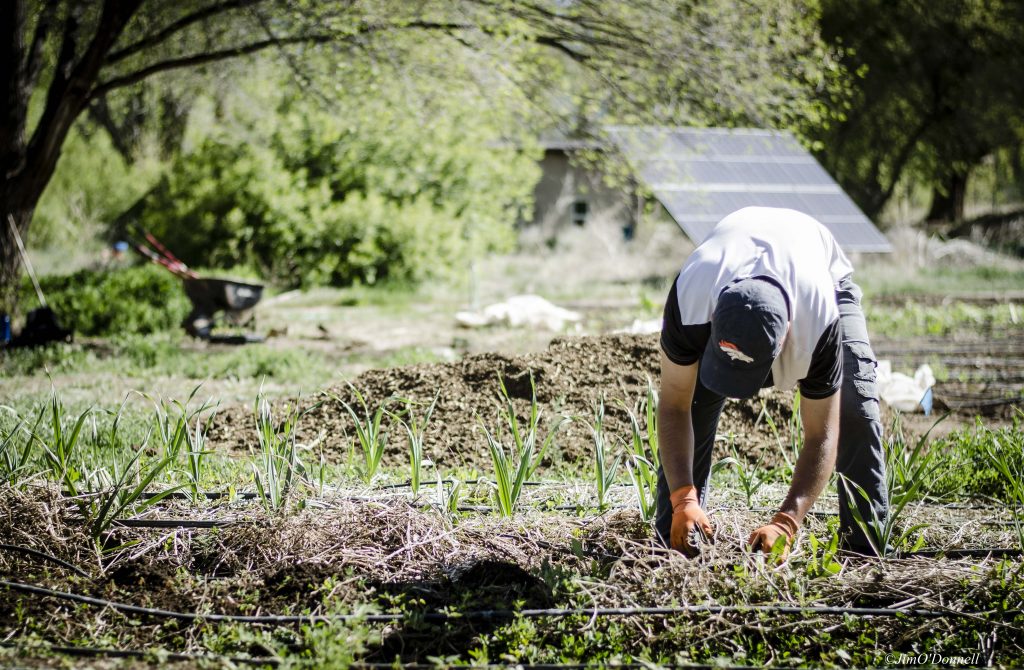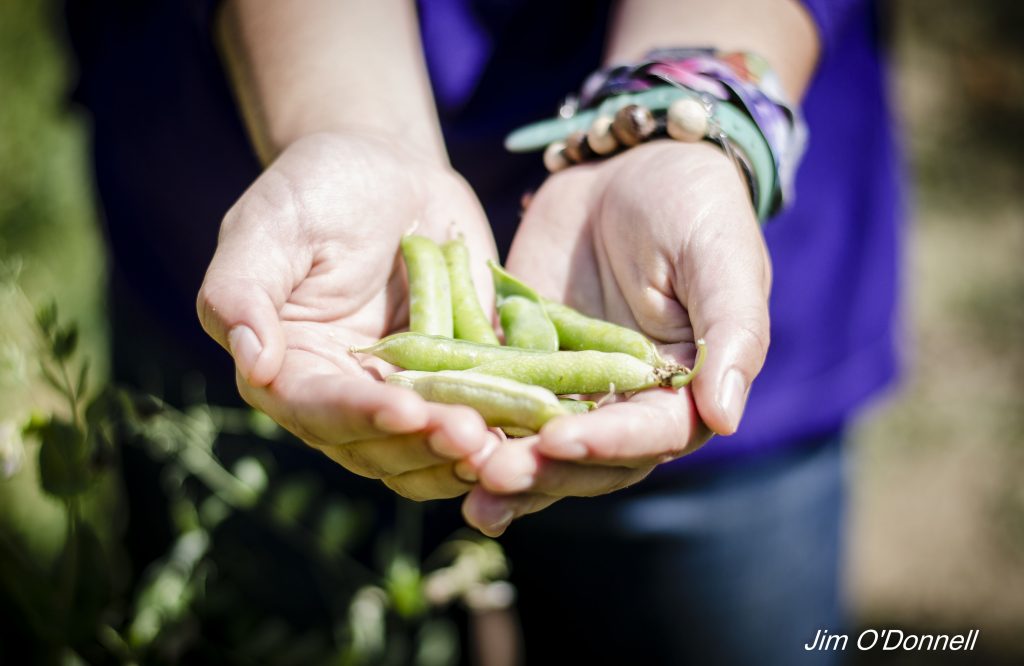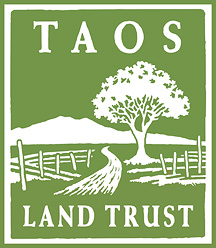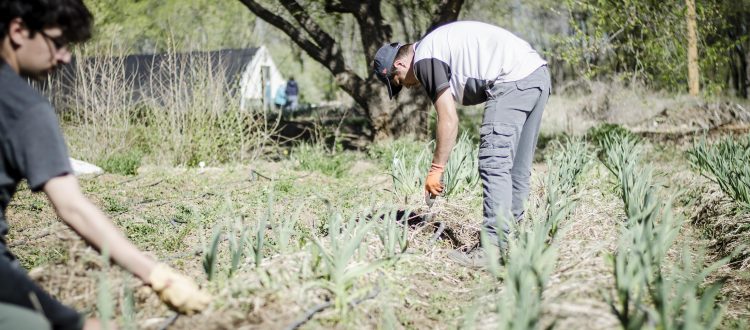Taos Land Trust and Vista Grande High School Partner to Feed Taoseños
The Taos Land Trust and Vista Grande High School (VGHS) have joined forces to provide fresh produce to Taos families and school lunch programs while offering paid technical training to Vista Grande students.
Tonalli Martinez-Parker, a student at VGHS and part of the program at TLT’s Rio Fernando Park, says that while she’s always enjoyed gardening, this program has given her a new perspective. “I see now how important it is to have a local food system. When people know how to grow their own food or have a place in the community to get fresh produce it impacts the community in many different ways. One huge thing is we don’t have to depend on factory farms or large corporations outside of the state,” says Martinez-Parker.
The project, funded by Vista Grande High School’s (VGHS) Career Technical Education and Community Schools grants, operates from Rio Fernando Park, the 20-acre public space created by the Taos Land Trust in the center of Taos. Rio Fernando Park is permanently protected by a conservation easement.
The program will see bags of fresh produce distributed to VGHS students and families on a weekly basis, beginning in June and continuing throughout the summer. Once school starts up again, the Rio Fernando Park will be used to support the VGHS sustainable agriculture class, and food harvested will support a local school lunch program. Additional education around the farm will include healthy eating and cooking education opportunities, platform for biology class experimentation and the freshman class’ agriculture expedition focus.

Corbett Wicks, the VGHS Sustainable Agriculture & Leadership Teacher and Mentorship Coordinator stresses that we need to keep moving away from the traditional view of what a classroom is. “We need to get out of the building, which too often represents all this memorization, test-taking and monotony. We need to move the classroom outside of the traditional system, so that students can learn and experience new things while also being functioning members of a community.”
The majority of the funding for this summer comes from the Career Technical Education grant. Additional funding comes from the Community Schools grant and the Indigenous Education Initiative grant.
“Our vision is to create an eco-system of community connections and resources that supports the well-being of Taos County residents,” says Amanda Flores, VGHS Community Schools Coordinator. “Interdependent communities are strong communities. Vista Grande aims to be a hub where students and families connect with community organizations and resources to ensure that students can be supported as a whole person–not just through the lens of academic achievement.”
This funding supports three paid student internships. Through the internship, students can also earn biology course credit.

“I enjoy working at the Taos Land Trust,” says Martinez-Parker. “Because I get to grow food. One of my favorite parts is harvesting all the vegetables. To me it’s really interesting to see how they grow, as well as to see the way a little seed can turn into this magnificent plant that gives us energy.”
For student Michael Maul, food justice is culture and culture is what brings people together. “Growing food used to be a part of my culture and now, I don’t know, not many families are growing food. They just go to the store and spend their money there” says Maul. “In the long run, it’s more expensive. Food justice is the ability to bring local, nutritious food to families, no matter how much money they make. Let’s not put people into different categories… they’re just people. When you grow food at home, it’s nutritious.”
“Agriculture is the heart of the cultural heritage of Northern New Mexico and VGHS aims to build a school community focused on the development of indigenous agriculture programs/food systems and community food systems,” says Isabelle St. Onge, the Director of VGHS. “The cultural heritage of northern New Mexico is agriculture. The recent COVID-19 pandemic clearly sheds light on the need for greater food security for the Taos area. VGHS is interested in funding the development of interdependent career pathway programs of study for Sustainable Agriculture.”
VGHS received $150,000 for phase two of Community Schools funding from the Public Education Department to develop community-led programming including the farm/food sovereignty program through 2021.
“Part of our focus with this program is on community building and getting student education better integrated within the Taos community,” says Wicks. “As social distancing eases we are looking towards more community educational workshops on things like vermiculture, composting and native plants. We’re feeling very fortunate to have the Land Trust as a partner going forward.”
“We feel it is vitally important to integrate land stewardship with education,” says Ben Wright, Education and Land Projects Coordinator at the Taos Land Trust. “We’ve always envisioned agricultural education projects to become a substantial park of Rio Fernando programming. When Vista Grande approached us with this idea, it clicked immediately because it completely aligned with program goals we had already set into motion. This collaboration has increased our capacity to accomplish these goals.”
For the VGHS students and Taos Land Trust’s YCC crew, working on the land puts curriculum in context. The learning, explains Wicks, has relevance and real-world application when you get the kids out of the classroom.
“Out here, we’re looking at the science of how things grow and how nutrients move around in systems and cycles. Our conversations on an average day in the field range from finding practical, creative uses of bindweed root or grappling with current events and pondering systemic change.”
After a month working at Rio Fernando Park, the VHGS interns are themselves suggesting experiments to look at soil health, weed control and plant spacing. One student wanting to know more about native plants sought out more information on her own. “I can’t even begin to express how exciting that simple question was,” said Wicks. “I’ve never seen that kind of innate curiosity happen in a classroom.”
##

